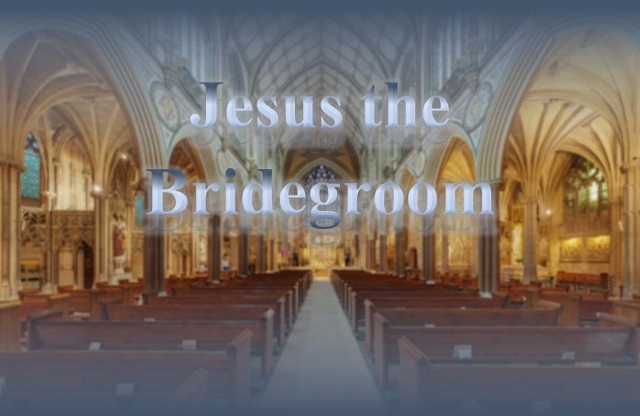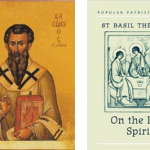In our day controversy abounds over the mysterious institution we call "marriage." For some, marriage is a purely human invention, a kind of civil partnership or temporary contract. From this point of view, marriage, like any human institution, is what we make of it. It is not necessarily sacred, or permanent, and it tends to …
In our day controversy abounds over the mysterious institution we call “marriage.” For some, marriage is a purely human invention, a kind of civil partnership or temporary contract. From this point of view, marriage, like any human institution, is what we make of it. It is not necessarily sacred, or permanent, and it tends to revolve primarily around the personal happiness of the spouses involved, and whether they “love” each other (whatever that may mean). For others, marriage is a divine institution, a sacred covenant rooted in the order of creation and established at the dawn of human history: “Therefore a man leaves his father and his mother and cleaves to his wife, and they become one flesh” (Genesis 2:24). From this point of view, marriage entails the union of the spouses, as well as procreation and the establishment of a family: “Be fruitful and multiply, and fill the earth and subdue it” (Genesis 1:28).
However, when we are confronted with “the great mystery” of the marriage of Christ and the Church (Ephesians 5:32), we realize that Christian marriage-as opposed to other forms of marriage-is more than just a personal contract or a sacred family covenant. Even more, Christian marriage is a living icon of the sacrificial spousal love between Christ and the Church. It is (or it is supposed to be) an outward sign of the invisible mystery of Jesus’ love for his bride and the bride’s love for him.
The “High Standard” of Spousal Love
Among the Church Fathers, arguably no one grasped Saint Paul’s (Ephesians 5: 21-33) insight into the mystery of marriage more completely than did Saint John Chrysostom. In his homilies on Ephesians, St John Chrysostom left us with what are arguably some of the most beautiful and challenging words ever penned on Christian marriage when he says to husbands:
Pay attention to love’s high standard. If you take the premise that your wife should submit to you as the church submits to Christ, then you should also take the same kind of careful, sacrificial thought for her that Christ takes for the Church. Even if you must offer your own life for her, you must not refuse. Even if you must undergo countless struggles on her behalf and have all kinds of things to endure and suffer, you must not refuse. Even if you suffer all this, you have still not done as much as Christ has for the church. For you are already married when you act this way, whereas Christ is acting for one who has rejected and hated him. So just as he, when she was rejecting, hating, spurning, and nagging him, brought her to trust him by his great solicitude, not by threatening, lording it over her or intimidating her or anything like that, so you must also act toward your wife. Even if you see her looking down on you, nagging and despising you, you will be able to win her over with your great love and affection for her. (St John Chrysostom, Homily on Ephesians, 20:5:25)
What a vision of marital love! And from well over a thousand years ago! Following the lead of St Paul, St John Chrysostom commands the Christian husband to strive to be a living icon of Jesus the Bridegroom. He makes the important point that in the final analysis, no human love could ever compare to the love of Christ; Christian marriage remains but an “image” of the perfect love of God. Nevertheless, because marriage is supposed to reflect Christ’s love for the Church, there is no excuse for male domination or intimidation. Likewise, when the Christian wife supports her husband and respects him by refusing to criticize him or tear him down, she too becomes a living icon of the Church’s joyful response to the sacrificial love of Jesus the Bridegroom.
For St John Chrysostom, as for Saint Paul, the ultimate goal of Christian marriage is the sanctification and salvation of the spouses. Speaking once again to husbands, Chrysostom writes beautifully:
Tell her that you love her more than your own life, because this
present life is nothing, and that your only hope is that the two
of you pass through this life in such a way that in the world to
come you will be united in perfect love. Say to her, “Our time
here is brief and fleeting, but if we are pleasing to God, we can exchange
this life for the Kingdom to come. Then we will be perfectly one both
with Christ and each other, and our pleasure will know no bounds.”
(John Chrysostom, Homily on Ephesians, 20)
Notice that for St John Chrysostom, although Christian marriage will pass away in the resurrection that does not mean that spouses will no longer be united to each other. To the contrary, spouses will be infinitely closer when the earthly sign of marriage gives way to the eternal reality of perfect union with God and one another.
From: Jesus the Bridegroom
By: Brant Pitre
Join Us: Sign Up Today!
Tags:












